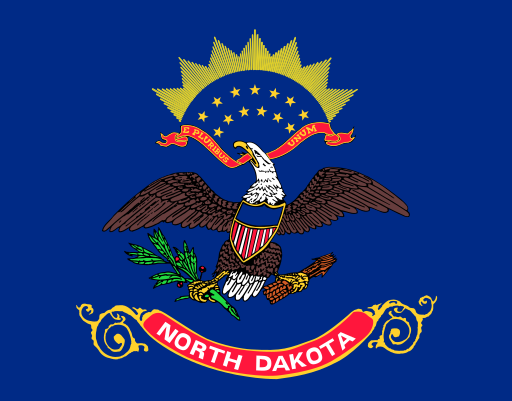In North Dakota, the organization New Economic Frontier reported submitting 22,000 signatures on July 8, 2024, for a ballot initiative to legalize recreational marijuana in the state. At least 15,582 of the signatures must be valid.
Burleigh County Commissioner Steve Bakken (R) filed the ballot initiative. He said, "A lot of what we don’t want to see is what’s going on in some of the other states, and we think that this is a measure that fits the conservative nature of North Dakota."
The initiative would legalize recreational marijuana. Under the measure, individuals could possess up to 1 oz of marijuana, 4g of concentrate, or 300mg of edibles. Individuals would be allowed to grow three plants with a limit of six plants per household.
New Economic Frontier stated, "We believe that legalizing adult-use cannabis is the key to transforming North Dakota. With this, we can unlock economic opportunities for our communities, create new jobs, ensure easier access to medical cannabis, and free up valuable law enforcement resources."
North Dakota voters rejected a marijuana legalization initiative in 2022 with 55% of voters opposed and in 2018 with 59% of voters opposed. In 2016, North Dakotans approved Issue 6, which legalized the use of medical marijuana to treat defined debilitating medical conditions, such as cancer, AIDS, hepatitis C, ALS, glaucoma, and epilepsy.
As of July 2024, 24 states and Washington, D.C., had legalized the possession and personal use of marijuana for recreational purposes. In 13 states and D.C., the ballot initiative process was used to legalize marijuana. In two states, the legislature referred a measure to the ballot for voter approval. In nine states, bills to legalize marijuana were enacted into law.
Ohio is the most recent state to legalize marijuana in Nov. 2023 after voters approved Issue 2.
Ballot measures to legalize marijuana for personal use are set to appear on the Nov. 2024 ballot in Florida and South Dakota.
End Unfair Property Tax submitted signatures on June 28 for a ballot initiative that would prohibit property taxes except those used to pay for bond debt.
The North Dakota State Legislature has referred three constitutional amendments to the November ballot. Those measures would do the following:
Measure 1: Update language used in the state constitution to describe certain state institutions such as changing “insane” to “individuals with mental illness”, “feebleminded” to “individuals with developmental disabilities”, and “deaf and dumb” to “deaf and hard of hearing”;
Measure 2: Establish a single-subject rule for initiatives; increase the signature requirement for constitutional initiatives; and require constitutional initiatives to be approved at two elections; and
Measure 3: Change the requirements for transfers from the state legacy fund, which receives 30% of tax revenue from oil and gas production.
Additional reading:


